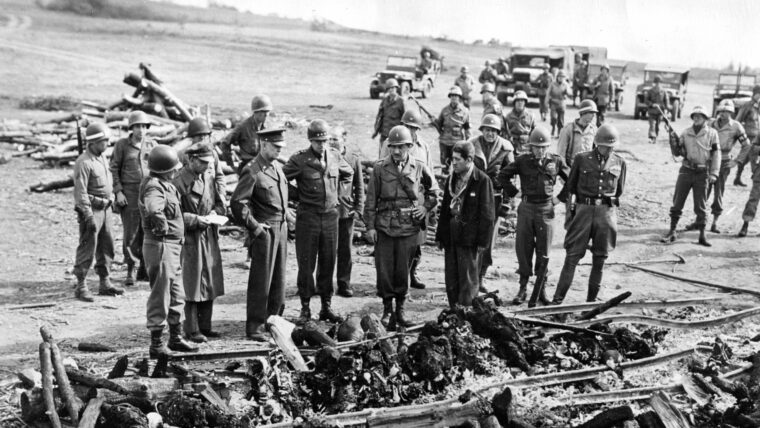
Nazi Germany
The Buchenwald Concentration Camp: Patton’s Bastardly Discovery
By Flint WhitlockThe blue arrows on Lt. Gen. George S. Patton, Jr.’s Third Army situation maps in his mobile headquarters trailer all pointed eastward. Read more

Nazi Germany
The blue arrows on Lt. Gen. George S. Patton, Jr.’s Third Army situation maps in his mobile headquarters trailer all pointed eastward. Read more
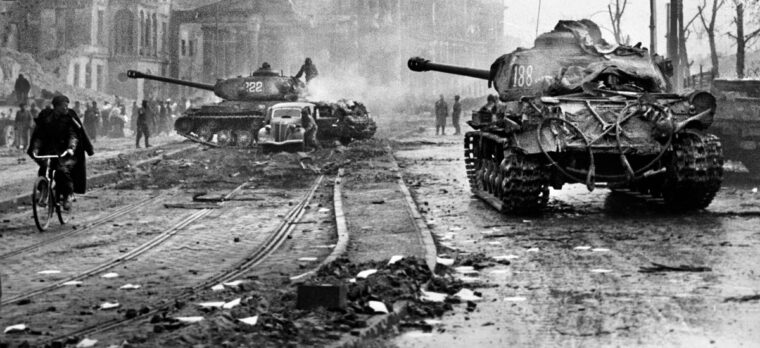
Nazi Germany
In the predawn hours of April 24, 1945, SS-Brigadeführer Gustav Krukenberg received orders from Army Group Vistula defending Berlin to immediately lead the remnants of the 57th Battalion of the 33rd Waffen Grenadier Division of the SS Charlemagne from its staging area at the SS training camp at Neustrelitz to the German capital. Read more
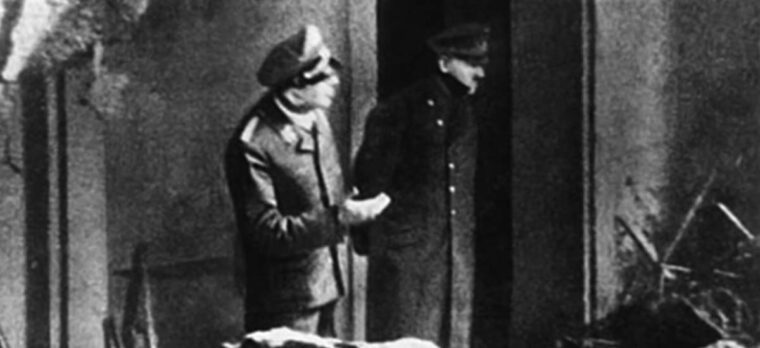
Nazi Germany
By Flint Whitlock
His world was literally crashing down in flames around him. Adolf Hitler’s Third Reich, which he had created out of nothing but his own will—an empire that he had once boasted would last for a millennium—was on fire and being torn apart by shot and shell, besieged on all sides. Read more
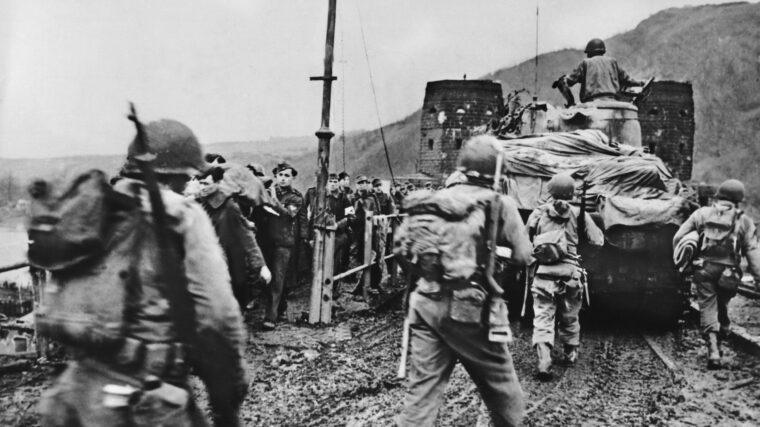
Nazi Germany
By Steven Karras
Prologue:Once they escaped from Nazi-dominated Europe, hundreds of German and Austrian Jews joined the American and British military to help bring an end to the Nazis’ reign of terror. Read more
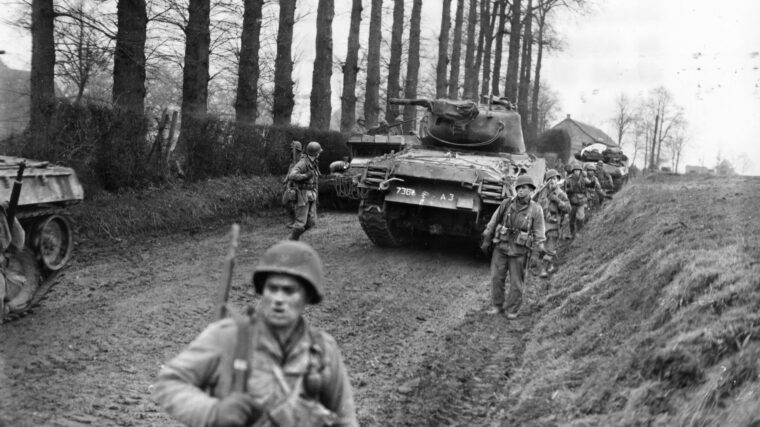
Nazi Germany
The 83rd U.S. Infantry Division had been mobilized for World War I in September 1917. Its unit patch was a downward-pointing black triangle with the letters O-H-I-O stitched as an abstract gold monogram in the center. Read more
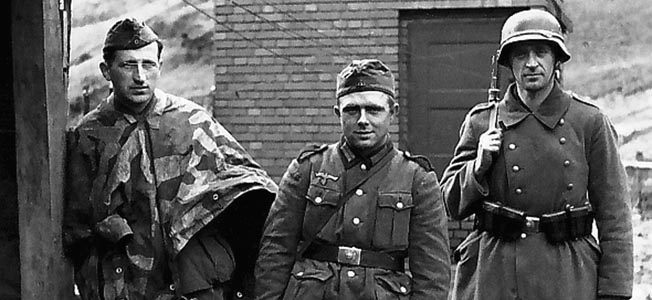
Nazi Germany
The evolution of Third Reich uniforms followed from a long history of European uniforms in general and Imperial German uniforms in particular. Read more
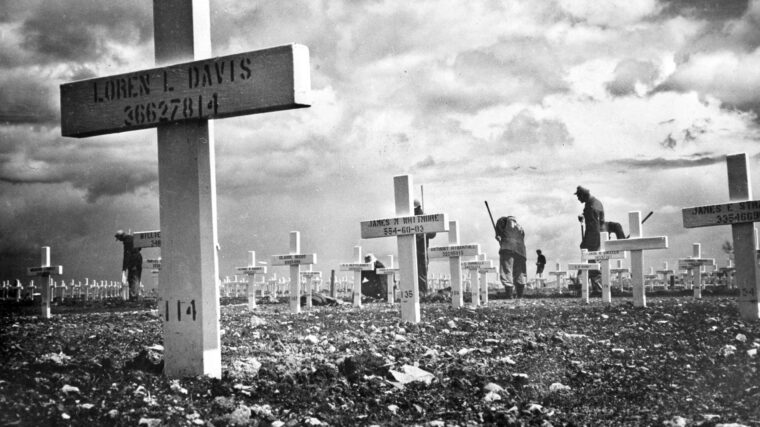
Nazi Germany
On June 6, 1945, two Stars & Stripes newspaper reporters traveled to Normandy with a mission: to photograph the effects of the year-old D-Day landings on the beaches, towns, and fields. Read more
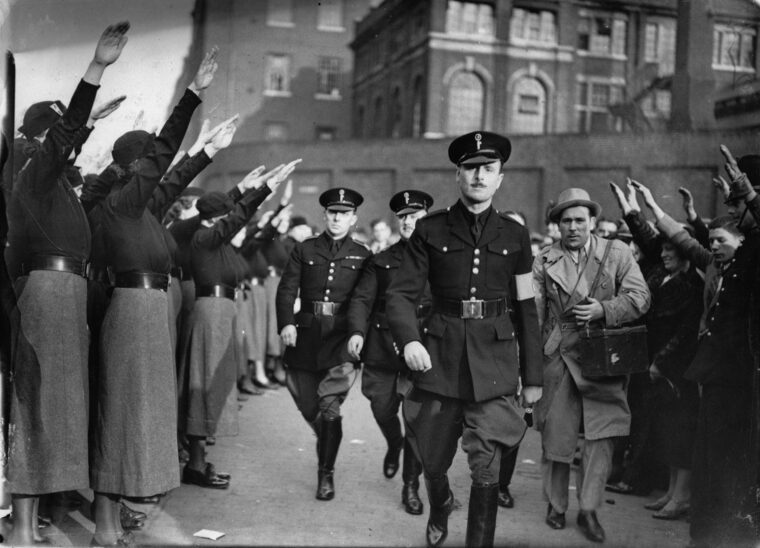
Nazi Germany
The most famous of the English-Language radio broadcasters from Nazi Germany was Brooklyn, New York-born William Joyce, known by the disparaging moniker Lord Haw Haw. Read more
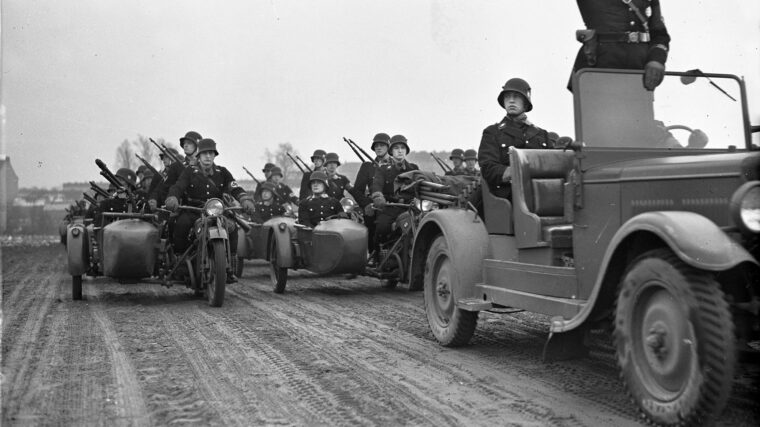
Nazi Germany
In 1933, before the Waffen-SS, there was a portion of the Nazi Party’s Schutzstaffel (SS), armed and trained along military lines and served as an armed force. Read more
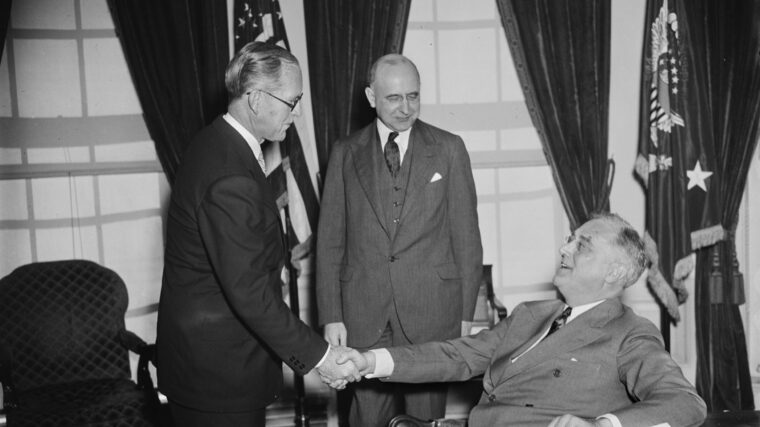
Nazi Germany
In 1939, Joseph P. Kennedy, the scion of the modern-day Kennedy family which included three United States senators, an attorney general, and the 35th president of the United States, was appointed the American ambassador to Great Britain by President Franklin D. Read more
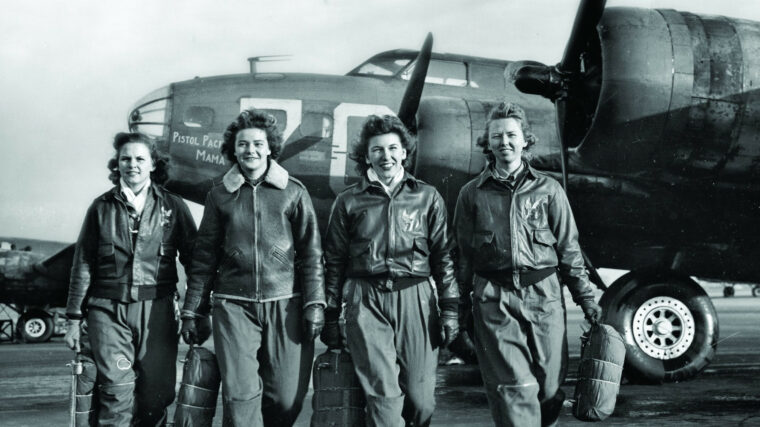
Nazi Germany
In 1941 two events took place on opposite sides of the world that forever impacted the history of women in aviation. Read more
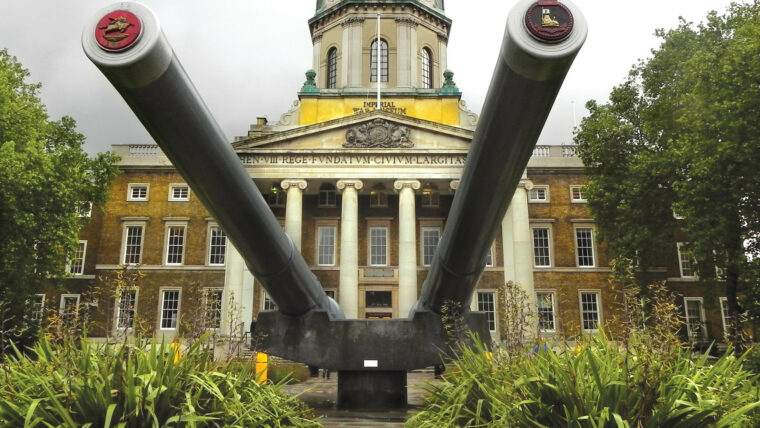
Nazi Germany
Although Britain has a number of war museums, the Imperial War Museum (IWM) is acknowledged as the Holy Grail of them all—the one you must visit when in London. Read more
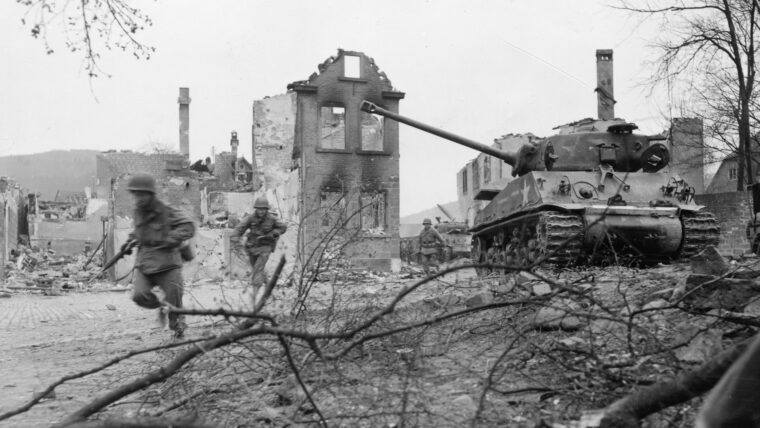
Nazi Germany
On January 17, 1945, as Allied forces prepared to descend on Germany itself and put an end to the war in Europe, an American tank battalion disappeared. Read more
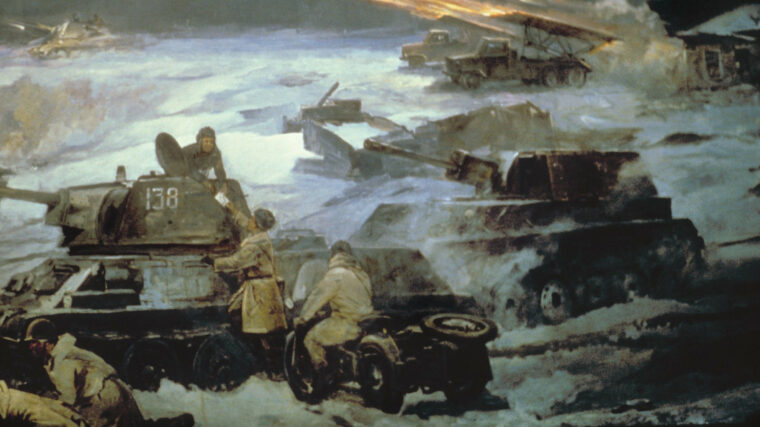
Nazi Germany
The area between the Baltic Sea and the Carpathian Mountains had been relatively quiet since the end of Operation Bagration late in the summer of 1944. Read more
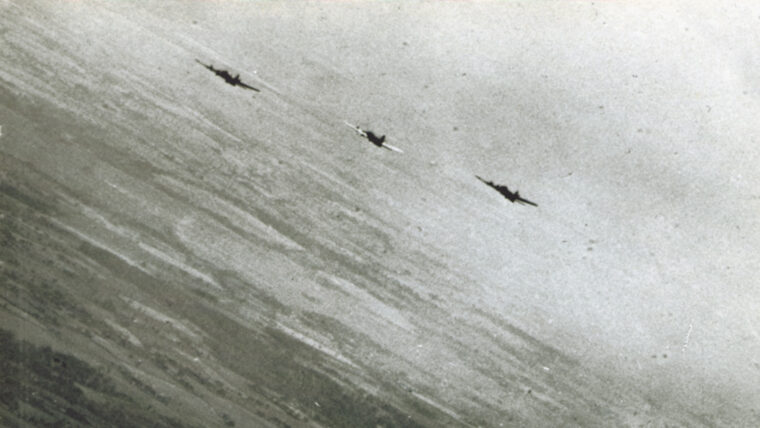
Nazi Germany
When it came to advanced military technology in World War II, arguably no one was better at it than Nazi Germany, whose scientists Adolf Hitler keep busy trying to invent the ultimate “super weapon” capable of defeating his enemies. Read more
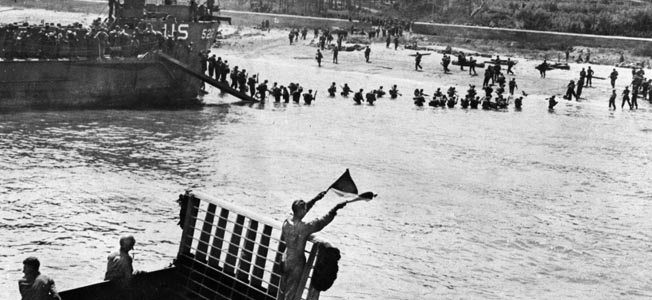
Nazi Germany
Early in 1944, German Field Marshal Erwin Rommel, the defeated hero of North Africa and now head of Army Group B in France, was tasked with strengthening the Atlantic Wall defenses against Allied invasion. Read more
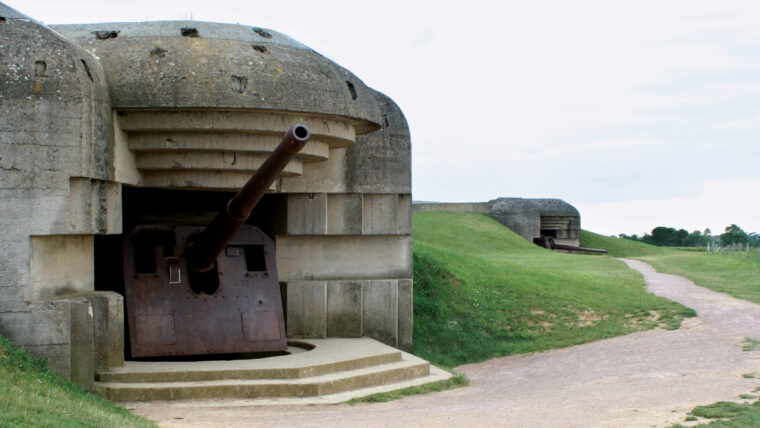
Nazi Germany
After overrunning France and other Western European countries in 1940, Adolf Hitler was certain that the Allies would one day attempt to invade the European continent and attack through the occupied countries to destroy his regime. Read more
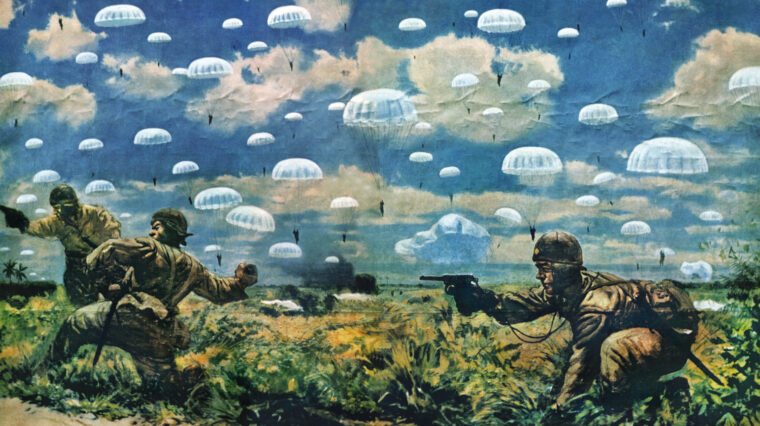
Nazi Germany
By the time the attack on Pearl Harbor plunged the United States into World War II, Japan had been preparing for an all-out offensive in the Pacific for months. Read more
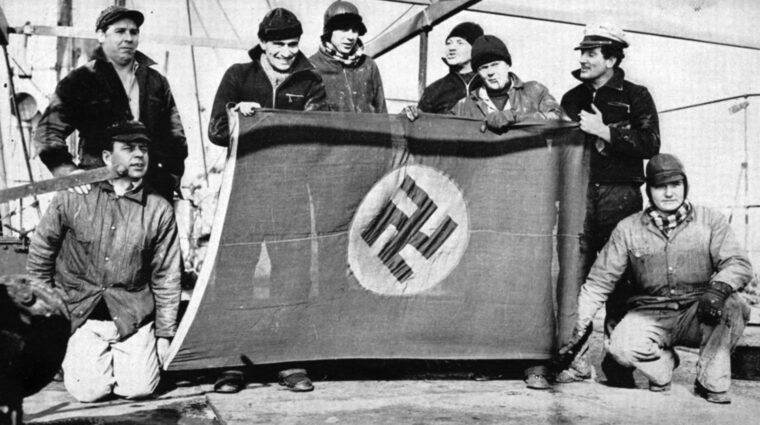
Nazi Germany
Joseph A. Gainard, captain of the American freighter City of Flint, hated to threaten his crew with piracy; the men were only reacting as any sailors would to the seizure of their ship by a foreign power. Read more
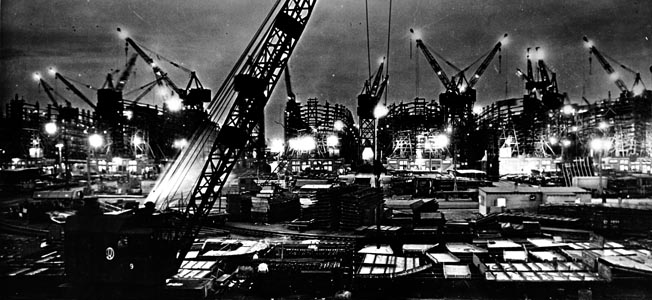
Nazi Germany
“We won because we smothered the enemy in an avalanche of production, the like of which he had never seen, nor dreamed possible.” Read more